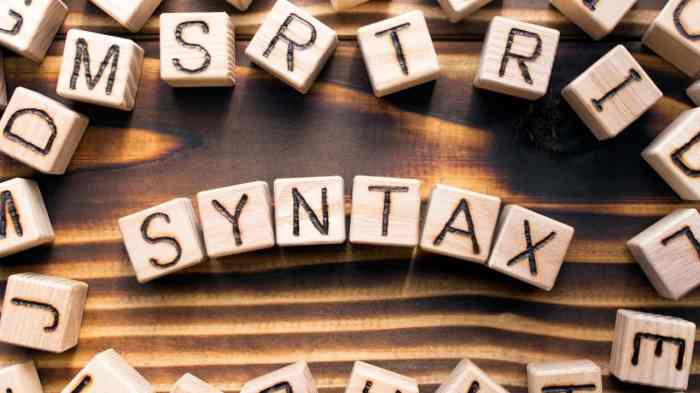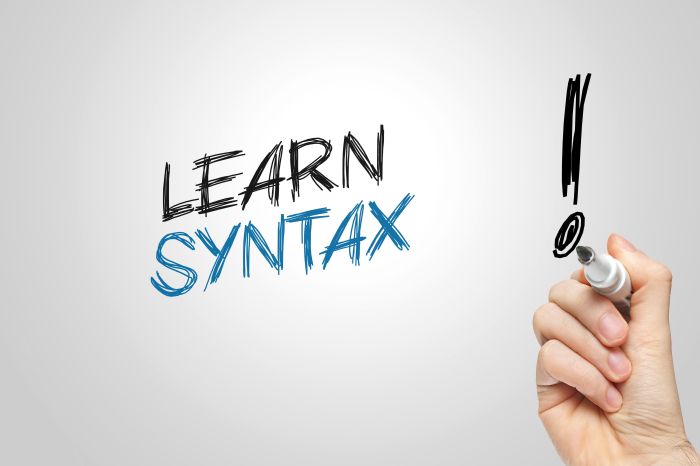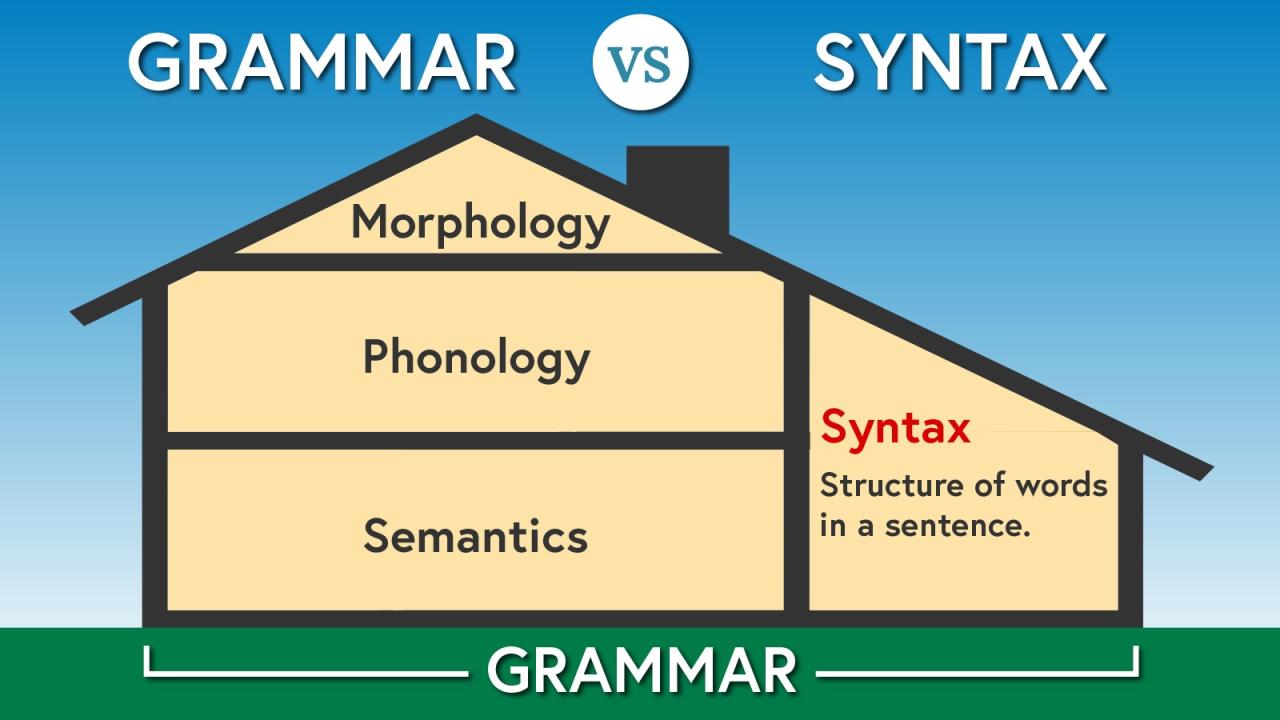The rules of a programming language constitute its _________________. They are the foundation upon which the language is built, shaping its structure, organization, and capabilities. Understanding these rules is crucial for programmers, as they influence code quality, productivity, and learning.
This comprehensive exploration delves into the intricacies of programming language rules, examining their impact on language design, implementation, and evolution. We will uncover the different types of rules, their relationship to language features, and how they compare across various programming languages.
Definition of Programming Language Rules
The rules of a programming language define the syntax and semantics of the language, determining how it is structured and interpreted. Syntax rules govern the formation of valid code, while semantic rules specify the meaning and behavior of that code.
Impact of Rules on Language Structure
Rules shape the structure and organization of a programming language, determining the way code is written and organized. Syntax rules, for example, define the order and structure of code elements, affecting code readability and maintainability.
Types of Programming Language Rules
Syntactic Rules
Syntactic rules define the valid syntax of a programming language, governing the structure and formation of code.
Semantic Rules, The rules of a programming language constitute its _________________.
Semantic rules define the meaning and behavior of code, specifying how it is interpreted and executed.
Pragmatic Rules
Pragmatic rules provide guidance and conventions for programming, such as coding style and best practices.
Relationship between Rules and Language Features
Rules enable and constrain the implementation of language features. Syntax rules, for example, define the syntax for specific language features, while semantic rules specify their behavior.
Evolution of Programming Language Rules

Programming language rules have evolved over time, influenced by changes in technology and programming paradigms. The development of new language features and paradigms has led to the introduction of new rules.
Comparison of Rules Across Languages
Different programming languages have different rules, reflecting their design goals and intended use cases. Comparing rules across languages highlights similarities and differences in syntax, semantics, and other rule types.
Role of Rules in Language Design
Rules are essential in the design and implementation of programming languages, providing a foundation for language structure and behavior. Designers carefully consider trade-offs and constraints when establishing rules.
Impact of Rules on Programmers: The Rules Of A Programming Language Constitute Its _________________.

Rules influence code quality, productivity, and learning for programmers. Understanding and adhering to rules helps programmers write correct and maintainable code, while violations can lead to errors and difficulties.
Future of Programming Language Rules

The future of programming language rules is uncertain, but emerging trends and technologies may influence their evolution. New paradigms, such as artificial intelligence and natural language processing, may require new rules or changes to existing ones.
Clarifying Questions
What is the role of syntax in programming language rules?
Syntax defines the structure and organization of code, ensuring that it is readable and maintainable. It specifies the order and arrangement of s, operators, and other language elements.
How do semantic rules differ from syntactic rules?
Semantic rules define the meaning of code, ensuring that it is logically sound and consistent. They determine the behavior of the program and the interpretation of data.
Why is it important to understand the rules of a programming language?
Understanding the rules of a programming language is essential for writing correct and efficient code. It enables programmers to avoid errors, improve code readability, and effectively utilize language features.